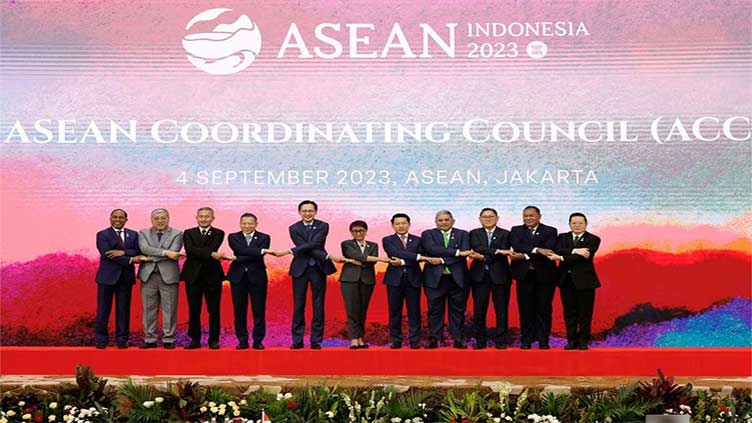Indonesia warns ASEAN on 'destructive' rivalry as Jakarta summit opens

World
Indonesian President Joko Widodo called on the group to devise a "long-term tactical strategy"
JAKARTA (Reuters) – Indonesia warned on Tuesday against Southeast Asia's bloc getting dragged into big-power rivalry as leaders gathered for a summit seeking to dispel worry about rifts over peace efforts in Myanmar and to reaffirm the relevance of their disparate group.
Indonesian President Joko Widodo, opening a summit of the 10-member Association of Southeast Asian Nations (ASEAN), called on the group to devise a "long-term tactical strategy that is relevant and meets people's expectations".
"ASEAN has agreed to not be a proxy to any powers. Don't turn our ship into an arena for rivalry that is destructive," Widodo said.
"We, as leaders, have ensure this ship keeps moving and sailing and we must become its captain to achieve peace, stability, and prosperity together."
Founded at the height of the Cold War in the 1960s to oppose the spread of communism, the politically diverse grouping prioritises unity and non-interference in members' internal affairs.
But critics say that has limited its scope for action when it comes to handling issues like fellow member Myanmar, where violence rages two years after the military seized power in a 2021 coup.
ASEAN has banned Myanmar's military leaders from its high-level meetings but differences have emerged with Indonesia attempting to engage all sides to push an ASEAN peace plan and Thailand trying to engage Myanmar's military leaders.
Malaysia called on Monday for "strong" measures against the generals saying they had created "obstacles" to the ASEAN peace plan.
'REASSERT RELEVANCE'
Former Indonesian foreign minister Marty Natalegawa said the bloc must adapt to challenges or risk oblivion.
"Obituaries on ASEAN actually have been written many times over, but somehow all those times, ASEAN has been able to reinvent itself and reassert its relevance. I feel today we are at one of those junctures," he told an ASEAN business forum on Sunday.
China and its sharpening rivalry with the United States also loom over the meeting.
Some ASEAN members have focused on developing close diplomatic, business and military ties with Beijing while others are more wary.
The summit comes days after China released a "10-dash line" map, illustrating its claim to an extensive portion of the South China Sea that will likely add urgency to negotiations on a long-delayed code of conduct in the strategic waterway.
ASEAN member states Malaysia, Vietnam and the Philippines, which have overlapping claims in the South China Sea, have rejected China's map.
Later this week, ASEAN leaders will hold an East Asia summit, a wider forum that includes China, India, Japan, Russia and the United States.
Adding to unease about ASEAN's relevance, US President Joe Biden is not attending the talks. Vice President Kamala Harris will attend instead. Chinese Premier Li Qiang will also attend.

